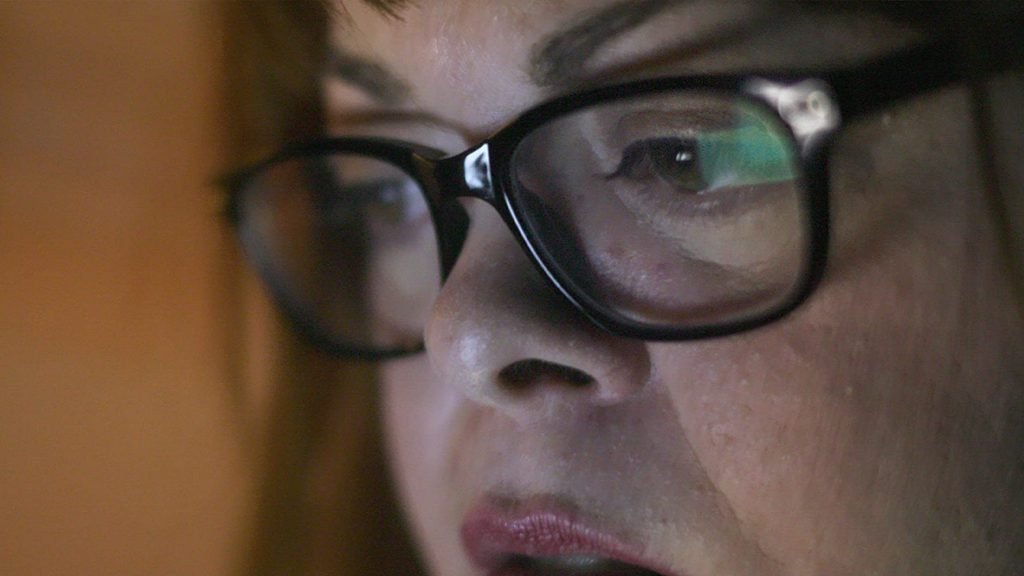Don’t F**k With Cats: Hunting an Internet Killer is a well-crafted blend of insightful investigation and Horror film suspense. Your next true crime fix will leave you reeling.
Released in December 2019, this Netflix original series and BAFTA nominee tells the hair-raising story of how a budding movement of e-vigilantes aided the arrest of a crazed, narcissistic killer. When an elusive figure posts videos of themselves shamelessly killing cats, a group of internet sleuths take on the task of tracking them down. Seemingly spurred on by the attention, this mysterious killer and a group of amateur, online detectives engage in a disturbing game of cat and mouse; a game that quickly turns deadly.
The title is either marketing genius or a tragic attempt to be ‘down with the kids’: I can’t quite decide, maybe a bit of both. Yes, there are cats involved (spoiler: the psycho murder kills them, very on brand) but the claim made by Deanna Thompson (a key player in the internet movement to stop the killer) that rule one of the internet is “don’t f**k with cats” seems a little ill-founded. I think we can all name a few more salient rules to abide by on the internet, given the horrendous amount of human trafficking and stuff, just a thought? The focus on cats in the title kind of underplays the whole murder investigation thing but, y’know, people do love cat videos.
What is really prevalent in the documentary is the indication of how much information is available to us online and in the media. The people featured are just your average Joes literally doing the work of an FBI agent, without the resources of the FBI. I mean, pretty cool, but I do find it slightly concerning that Deanna from Vegas can do a much better job than professional law enforcement across the globe. Deanna Thompson, John Green and others featured in the show discuss the techniques they used to identify the location of the killer from the heinous video material he posted online. Those featured in the documentary demonstrate an impressive range of self-taught skills: From tracking down the sellers and origins items in the background of the footage, to analysing the geographical inferences of the location (as Thompson brilliantly puts it; “I spent 16 hours looking at f**cking doorknobs from Lithuania”). You have to admire the resolve of these people.

The three-part series sheds real light on the incredible resources and learning opportunities we all are exposed to in film and TV (honestly, some of the techniques we’re talking about came straight out of CSI). However, it very prominently indicates the desperate need for further monitoring of the internet. I can guarantee security services across the world would be of better use finding out who is posting videos of literal murders, rather than tapping into your Alexa or monitoring your google searches to get you added to yet another useless mailing list. Aside from the serious shortcomings of law enforcement, Don’t F**k With Cats illustrates the cruel side of the internet and the dangers of vigilante justice. Someone who was falsely believed to have been the killer in question, Edward Jordan, was the subject of a full online witch-hunt and subsequently took his own life. There’s no such thing as a fair trial online.
The scary thing is, this could be where we are heading. It’s no secret that law enforcement in many areas of the world is lacking in some way, be that in funding or being in need of some serious moral adjustment. Equipped with self-taught skills and a righteous cause groups such as these are popping up more and more, and where they do achieve good in terms of catching criminals, proper procedure is often ignored. This harms the reputation of such groups meaning authorities take zero notice, which then perpetuates the need for them. You see the issue here? It’s all a vicious cycle. I’m not trying to discount the achievements of these people: they got a killer put away for life. That is undoubtedly a good thing, but really it shouldn’t be left to them.
An interesting quirk of the case, that is reflected in the series, is the killer’s obsession and emulation with Frank Abagnale, the character played by Leonardo DiCaprio in the 2002 film Catch Me If You Can (a great film and, while we all love Leo, I don’t suggest you become a murderer over it) . The killer attempted to copy Abagnale’s genius evasion of the police whilst on a crime spree that lasted years. However, he massively missed the point: Abagnale was a charming 18 year old who, admittedly committed a lot of fraud, but didn’t actually kill anyone. The cat killer’s interpretation of the film seems to be slightly skewed.
Overall, the documentary is a well-executed illustration of modern crime investigation, which, in an increasingly digitalised world, may well become more collaborative between police and the public. For me, it raised some social questions too. Online and in my own life, I have seen people dismiss those in the documentary as ‘internet nerds’ as though this devalues their work. If this is you, take a look in the mirror: they literally solved a murder, what did you do today?
Don’t F**k with Cats: Hunting an Internet Killer is now available to watch on Netflix.

